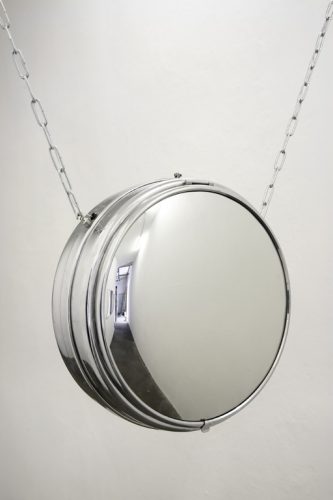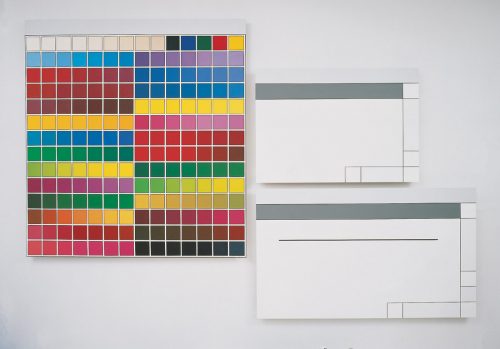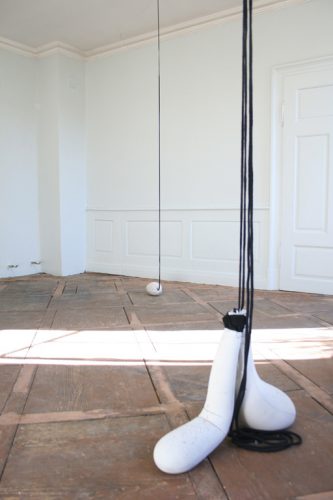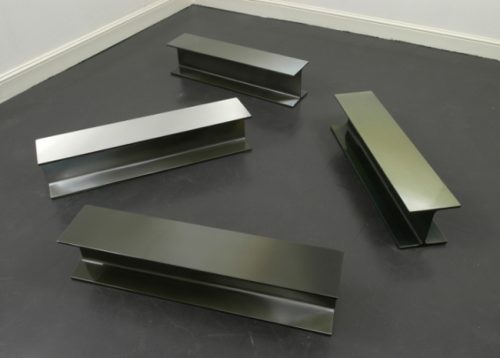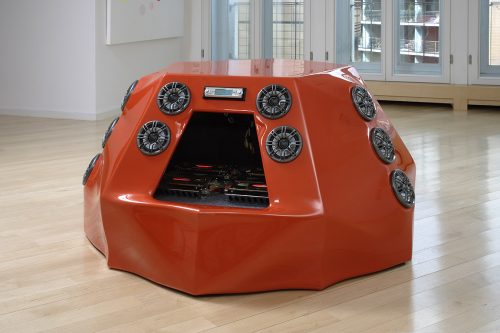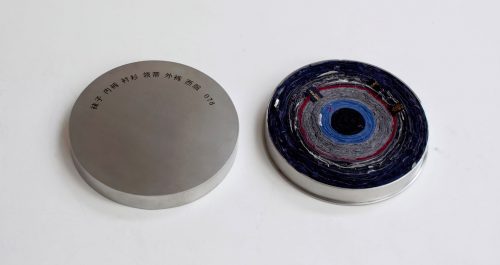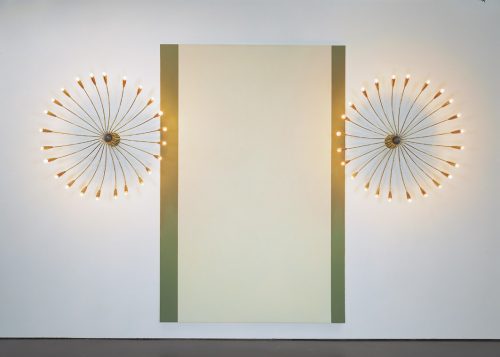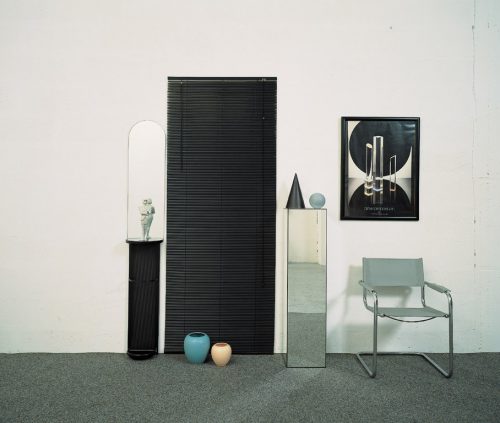Alicja Kwade’s wall clock with an analog dial follows an absurd logic that is all its own: when the second-hand moves forward by one second, then the whole dial turns in the opposite direction, moving anticlockwise. Remarkably, however, one can still read the time from it; the clock is in fact showing the right time in terms of its hour hands and second hands. One could hardly fail to hear the continuous ticking of the clock hands. It disconcerts any visitor standing close to it, creating an awareness of the passage of time. Kwade gives us the clock as a time machine, one that sets the rhythm for times spaces. Among other things, it points out how absurd machine rhythms of this kind can be and how absurd our obsession with time can sometimes become. We see our second-by-second advance into the future and the forces that pull us back into the past, colliding in this single object. In this collision, the present moment is, as it were, suspended and erased. To engage with the schizophrenic factor in these antagonistic forces represents a mental stress test.
close
checkout*
Shopping cart
Versand und Abwicklung erfolgt über die Bücherbogen am Savignyplatz GmbH in Berlin. Für Fragen zu Bestellungen wenden Sie sich bitte direkt an info@buecherbogen.com
Handling and Shipping is done by theBücherbogen am Savignyplatz GmbH in Berlin. For questions regarding your order please contact info@buecherbogen.com directly.
*
Bestellungen aus der EU sind bei PayPal auch ohne Anmeldung möglich. Sie können dann auch bequem per Bankeinzug oder mit Ihrer Kreditkarte zahlen.
Für diese Option klicken Sie bitte auf PayPal und wählen anschließend die Bezahlung "Mit Lastschrift oder Kreditkarte" aus.
Buyers from within the EU can use PayPal even without having a PayPal account.
Via Paypal you can also check out with direct debit or with your credit card.
For this option please click on "Check out with PayPal" and make use of the "Payment by Direct Debit or Credit Card".

